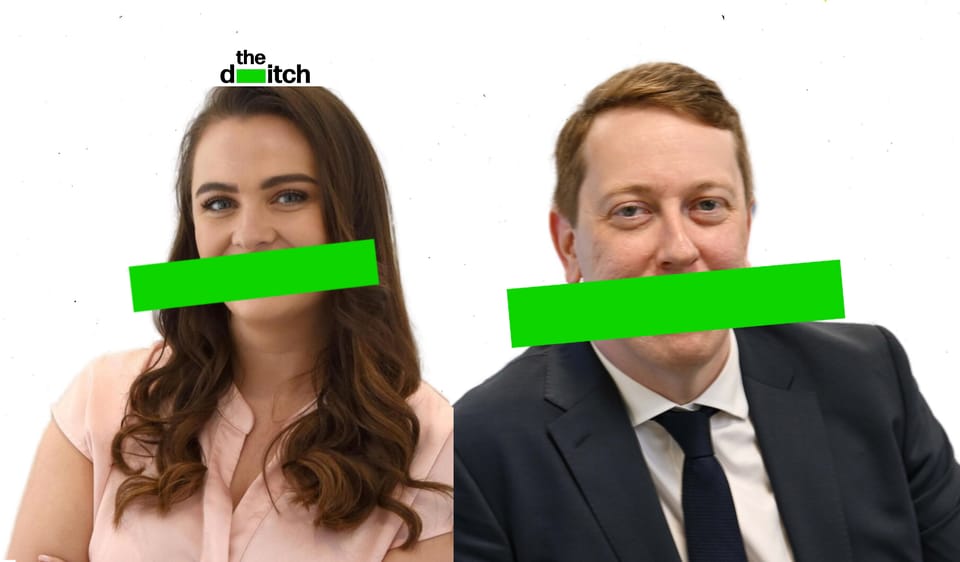In February 2019 political correspondent Hugh O’Connell wrote a piece about a trend that had “raised concerns” of a “brain drain”: Fine Gael hiring half a dozen journalists as special advisers in 18 months – a "brain drain", wrote O'Connell. Government had offered lucrative positions, with salaries often exceeding €100,000, and journalists couldn't resist. And who, in this media environment, could blame them?
So goes the story journalists tell themselves about the relationship between their profession and power. Six years later the brain drain continues. Hugh is among the most recent batch of reporters to leave a senior position in a major outlet for an advisory position. He joins ex-group editor of The Sun Paul Clarkson and former Business Post health correspondent Susan Mitchell. O'Connell now works directly for foreign affairs minister Simon Harris.
Though Irish media is relatively well respected compared with its international counterparts, overall trust levels in the industry have hovered at around 50 percent for the last decade. If there’s a perception that journalists, particularly political correspondents, are friendly with the power they say they’re holding to account, some deciding to switch sides doesn’t help.
A number of readers have grown so cynical they see newspaper columns as auditions for special adviser roles. Did Hugh O’Connell have a job with Fine Gael in mind when he wrote articles attacking Sinn Féin? Was his colleague and ex-Irish Examiner journalist Ciara Phelan angling for a press secretary job when she interviewed then-minister for finance Paschal Donohoe and focused on how sad he must have been when his mother died?
Buy a paper
The problem for a media trying to reassert its credibility – through scaremongering about disinformation or imploring the public to do their democratic duty and #BuyAPaper – is that public cynicism can be correct. Political correspondents really do hang around the Dáil bar, hoping a minister might feed them a scoop. They really do trade favourable coverage for access. Many of them really do hope to become a special adviser in a few years.
Those still in newsrooms find themselves in denial whenever yet another colleague leaves for Leinster House. Such moves are uncomfortable acknowledgments that yes, newspapers are indeed that cosy with power. The anxiety this thought produces often manifests in its opposite, with journalists dismissing as conspiracy theorists anyone who mentions the revolving door between newspapers, government and lobbying firms.
“The theory that journalists have been using their work in newspapers as a way to send secret signals to politicians all along is a seductive one, sure,” said Ellen Coyne, writing in the Irish Independent recently. “But it’s not true. It is desperately unfair to place the blame for an industry-wide problem on individual journalists. Nobody gets into journalism to go into the government. If a lot of them are getting out of it for that reason, then something has gone wrong.”
But nothing has gone wrong. Journalists and politicians share the same class interests, the same beliefs about how society should function and occupy complementary positions in producing ideology that legitimises the ruling class. Politicians make decisions and journalists make those decisions seem natural – transforming political choices into common sense. Political correspondents becoming special advisers isn't a symptom of dysfunction. It means everything is working exactly as intended.
A fair and honest media
The Irish Examiner covered O’Connell’s departure from journalism. Anonymous Fine Gael sources told the paper his hiring was “something of a coup”. Harris, for all his faults, is media savvy. He understands the dynamics that govern why certain kinds of stories appear and others don’t. He’s known to be a source for several high-profile journalists, keeping them loyal with access and occasionally landing their work on front pages.
No one ever asks if this arrangement compromises the media – the taoiseach himself dishing out information to reporters. Such charges are reserved for the likes of Sinn Féin, which last year called for a review of RTÉ’s poor coverage of Israel’s genocide in Gaza and its habit of running Associated Foreign Press – known to self-censor its reporting of IDF atrocities – wire copy without editing it.
When power mentions ensuring “fairness” in news reporting, it means maintaining a system of access journalism – with special adviser positions for those who play by the rules. People who don't are deemed political, as The Ditch was when it exposed how Fianna Fáil TD Niall Collins voted to sell council land his wife bought. In response to questions about the story, Micheál Martin abused Dáil privilege to insinuate we’re funded by Russia and referred to us as “a political organisation”.
‘What’s your planned publication time?’
Journalists who become special advisers generally aren’t hired to provide expert advice – they are mercenaries whose job is to manage criticism of government by rewarding compliant journalists.
Here’s an example.
On the morning of 31 August, 2022, The Ditch sent then-minister for Health Stephen Donnelly a request for comment. We wanted to know why he failed to declare a rental property with the Residential Tenancies Board, why the property was in his partner’s name on the land registry and why he didn’t declare himself a landlord in his Dáil ethics returns for three years.
One of Donnelly’s advisers, former Newstalk political correspondent Páraic Gallagher, waited until 2.53pm to respond. "I've just picked this up now,” he wrote. “I'll revert with a response as soon as possible this evening – what's your planned publication time?" Between receiving our request and sending that email, Gallagher tipped off Irish Times journalist Jennifer Bray – likely, we would say, on the assumption that she would be nicer to Donnelly than The Ditch. And Bray went along with it.
When the story went live on the Irish Times website that evening – a little before the deadline we gave for comment – Bray led with Donnelly's "admission" that he had failed to register his rental property, almost presenting it as a voluntary disclosure rather than a response to an investigation. She gave ample space to government figures defending Donnelly, left out details about the property being in Donnelly’s partner's name and used the exact statement that Gallagher had sent to this publication.
The game's the same
Gallagher, to his credit, did exactly what he is paid to do. But maybe Jennier Bray, Pat Leahy and the political team at the Irish Times should think about why government handed them that story. A left analysis of Irish media would suggest they’re part of an institution that tries to mould and shape public opinion, seeks to establish consensus and attempts to depoliticise the decisions made by people in power.
There’s no contradiction between participating in the system of political patronage that determines what stories appear in the broadsheet press and later becoming an adviser. Journalists who become special advisers just have to direct their energy in a different direction – the game remains the same for everyone taking part.


